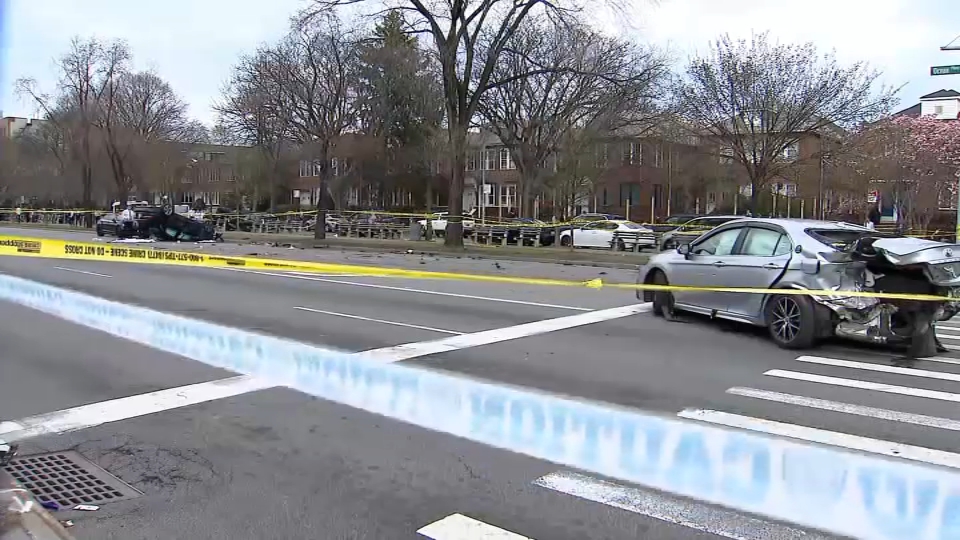The top prosecutor in Manhattan is warning women that if they drink to the point of intoxication, New York’s sex crime statutes may not protect them from rapists.
What to Know
- After an I-Team investigation revealed a loophole in New York’s rape statute, an outraged lawmaker says she wants to amend NY’s Penal Code
- “The law has this gaping hole,” said Senator Alessandra Biaggi (D–Bronx/Westchester). “This should be a no-brainer for the legislature."
- Biaggi has the support of another state senator, Julia Salazar, who questioned the sincerity of Cy Vance’s letter he sent to Gov. Cuomo
After an I-Team investigation revealed a loophole in New York’s rape statute, an outraged lawmaker says she wants to amend the state’s Penal Code.
“The law has this gaping hole,” said Senator Alessandra Biaggi (D–Bronx/Westchester). “This should be a no-brainer for the legislature.”
Biaggi is referring to a portion of the criminal code that defines when rape victims are capable of consenting to sexual activity.
Last year, Manhattan District Attorney Cy Vance wrote a letter to Governor Cuomo, suggesting he cannot hold sexual predators accountable when they have sex with heavily intoxicated victims — because someone who is “voluntarily intoxicated” isn’t considered too drunk to consent.
“Under current law,” the letter says, “a voluntarily intoxicated individual is not considered ‘mentally incapacitated,’ even if he or she were unable to control his or her conduct due to that intoxication. Therefore, prosecutors cannot bring sex crime charges in cases where the victim became voluntarily intoxicated and was unable to consent, even if a reasonable person would have understood that victim was incapacitated.”
Vance said Governor Cuomo had yet to formally respond to the letter, which was dated April 2, 2018 — about seventeen months ago.
Local
Although an email provided by the Manhattan DA’s Office shows the letter was sent to Alphonso David and Adam Silverman, two of Cuomo’s top aides at the time, Rich Azzopardi, a spokesman for Cuomo, said this is the first the Governor’s Office has heard of Vance’s letter.
“We have no record of receiving this letter,” Azzopardi said. “But anything we can do to better protect victims and build upon the progress we made this year — we will do. We look forward to engaging with the legislature on this issue.
After the I-Team publicized DA Vance’s letter, Biaggi immediately drafted a bill intended to close the loophole — and eliminate “voluntary intoxication” of the victim as a defense in sex crime cases.
“The bill addresses the exact problem that DA Vance has brought up,” Biaggi said. “This will close that loophole. It will allow for prosecutors to bring these cases.”
Senator Julia Salazar (D-Bushwick), said she would be likely to support legislation if it clarifies that it is a crime to have sex with a person too drunk to consent. But she questioned the sincerity of Vance’s letter — suggesting he could have fought for intoxicated rape victims using existing law, too.
“I think that the Manhattan DA may have used [the letter] as an excuse or to make up for the fact that he has in the past failed to prosecute some pretty glaring cases of sexual misconduct,” Salazar said.
In response to critics, Vance noted that he has tried to prosecute cases in which victims were intoxicated, including the rape case against former NYPD cops Franklin Mata and Kenneth Moreno. They were convicted of official misconduct, but acquitted of rape after an intoxicated woman accused them of escorting her into her apartment and taking advantage of her.
Stephen Schulhofer, a Professor of Law at NYU Law School, said DA Vance is right to urge closing the “voluntary intoxication” loophole, but he suggested the best way to do that would be for New York to adopt a more expansive reform — what is known as an “affirmative consent” rape standard.
In New York, a crime is committed only when someone engages in sexual activity by physical compulsion or when someone proceeds with sexual conduct after a victim resists or says “no.”
But in states with “affirmative consent” laws, a crime can be committed even if a victim fails to say “no” or to physically resist. Affirmative consent laws make it a crime to engage in sexual activity unless the other party says “yes” or offers some other meaningful sign of willingness to proceed.
“There has to be either words or actions that communicate permission,” Schulhofer said. “A substantial majority of states have already done this.”
Schulhofer said New Jersey is among the states that have an affirmative consent standard for rape, which leaves intoxicated victims on either side of the Hudson River with vastly different protections under the law. In New Jersey — it would be a crime to have sex with someone who is drunk, passing in and out of consciousness, and unable to communicate permission. But in New York, someone in the same condition would likely be unable to say “no,” so having sex with her or him, would be legal.
“New York is way behind the curve in bringing our statutes up to the way ordinary people think about this,” Schulhofer said.
Both Senators Biaggi and Salazar say they are generally supportive of writing affirmative consent into New York’s Penal Code.
Although Vance’s letter did not specifically advocate for an affirmative consent standard, he said he believes that is an important debate the legislature should have.
“I think clearly, affirmative consent is the most clear way that we can minimize the chance of a sexual assault,” Vance said. “I want to look at that very carefully. I would not cross that out as out-of-bounds at all.”



